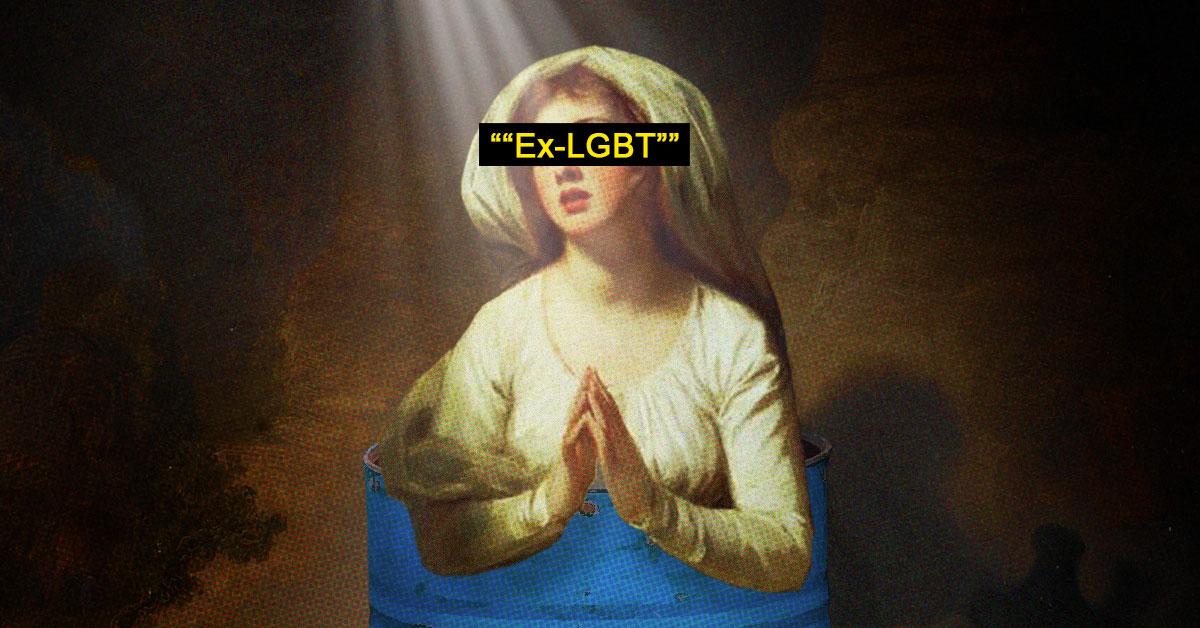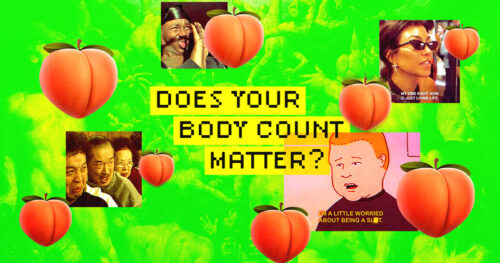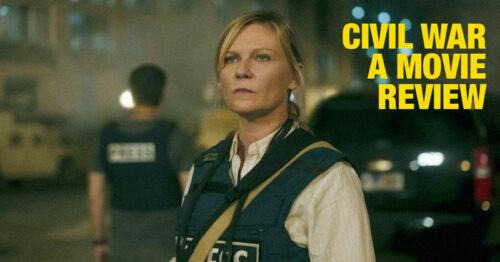Featuring one member of a Christian community that celebrates the LGBTQIA+
Ahead of official Pride Month celebrations, one religious group took to YouTube to publish a vlog entitled, “Ex-LGBT Conversation.” The video cuts from a clouds-and-coffee montage to five women lounging in a living room, readying to answer the main question at hand: “Is there such a thing as a former LGBT?” Their answer, in short, is yes. And three of the women in this room are proof.
Watching the conversation unfold, one thing becomes clear though: the boldness of their move to have such a conversation, unfortunately, fizzles out. It stalls when it resorts to speaking in platitudes rather than speaking to a reality outside of religion. Ultimately, this “Ex-LGBT Conversation” begs the question: is this a conversation we should be having at all during Pride Month? We don’t think so. But since the video is out there for the world to see, we’d like in on the dialogue. Ahead, a Christian ally to the LGBTQIA+ and I offer our two cents.
RELATED: What Christianity Tells Me About #LoveWins
Nicole: The last time we spoke, it was also during Pride. And it was because you had people from your former Church reach out to you in the hopes of censoring your support for the LGBTQIA+.
Astrid: Yes. That was the first time I talked about the community. It’s funny-but-not-really because I read a post by one of my gay Church mates that said: “You don’t get to use people’s trauma and call it a testimony.” And a lot of times the Church does that.
Nicole: This “Ex-LGBT Conversation” video, however, appears to address homosexuality differently. It’s a pleasant conversation; it’s inviting. But then paying attention to the actual context is a different story. There’s danger in one-sided rhetoric especially when it’s packaged in this well-meaning format. It promotes compassion and finding one’s truth. Then, to your point, it segues into “homosexuals are sinners that must be saved.” Yes, this humanizes the “conversion journey” thanks to the three women in the video. Yes, their experiences are valid. Yes, their personal victories are worth celebrating. But why isn’t there a more careful consideration for the message put out there: the formerly oppressed now gets to do the oppressing?
Astrid: I feel you taking aim at the part where the girls discuss the color-coded labels lesbians give themselves.
Nicole: That’s just one of the parts, yes. How they explain it is that blue means a masculine lesbian, therefore the boy in the relationship. Pink means a feminine lesbian, therefore the girl in the relationship. Purple means you could be both. Before relaying details in this manner, they could have taken it upon themselves to be better informed about Sexual Orientation, Gender Identity, and Gender Expression (SOGIE). Side comments like, “Oh, so you were the girly guy in the relationship?” are backward. And there are other moments similar to this that show that the LGBTQIA+ is seen through the lens of heteronormativity. This shouldn’t be the place to come from if you’re looking to have a dignified conversation about the community.
RELATED: Things I Wish I Knew Before Coming Out
Astrid: The talk points didn’t surprise me though. “True freedom only being in Christ,” us having “one spirit, one mind, one love made possible only through Christ”: these are embedded in the minds and hearts of the devout––mine included, at one point. I used to think this way and believe in the same things.
Nicole: As a Christian, then, how were you able to come to your own conclusions about this treatment of the LGBTQIA+?
Astrid: Through educating myself about the community. It was a chance at a fresh perspective. The great temptation of this brand of Christianity is it puts—and keeps you—in a bubble, and you eventually become “blind” to the needs of others. You stick with people who think just like you, and it makes your perspective narrow. I’ve been there, and I can honestly say I was self-centered without even knowing it. I preached the love of Christ but I also displayed that holier-than-thou attitude.
It’s difficult to be an ally in an environment where the life-giving words of Scripture are used to alienate and otherize people who we’re commanded to love. I tried and that kind of blew up in my face; it was a very disheartening experience for me. But now that I have this more informed outlook on these matters, I can’t idly stand by and do nothing about it.
Nicole: It’s unfortunate that it sometimes becomes more about how many bible verses you can cite to defend your point. How do you move the conversation toward a realistic perspective that considers how diverse society is? How diverse life is?
Because religion, by itself, is complex no matter how hard we try to homogenize everything. I was baptized as a Catholic, raised as a Catholic. And my relationship with religion has changed so much over the years to the point that what’s become more important to me is to try and do good rather than memorize the templates of Catholicism that I have to fill in and follow.
Astrid: This reminds me of a time I was on Twitter. I posted about the drug war and how as a Bible-believing Christian, this isn’t something I support; I mean nasa 10 commandments ‘wag pumatay. And a random follower replied with a bible verse and told me na we’re supposed to obey our leaders. So parang, that can’t be it: na you give a bible verse and that’s it.
If you preach people into believing, you won’t change hearts and minds. If you’re trying to create a relationship with someone, you have to take their realities and their beliefs into consideration. It also boils down to human rights. So that’s why it’s easier for me to understand these things now.
“Being gay and being Christian, those are in there—with lots of other things, too. So to take away one of those cores, it doesn’t feel like an option to me.” She adds, “I stay because I have hope. I choose to believe that my presence might make a difference…I stay because it’s home.”
– Rev. Erica Lea, Calvary Baptist Church
Nicole: I’m holding out for hope that there’s a way to move forward after the first bible verse is cited. [Laughs] Bible verses being used in dialogue regarding diverse societal issues in a way says, “Hey, look at this bible verse. You. Yes, you. You ingest it. You abide by it like a true Christian!” Whether or not you share this same faith is clearly none of their concern. That’s where discourse dies. And in a way, taking on a conversation with one specific religion at the forefront, especially without reading the room, is an imposition more than anything.
Astrid: An imposition––like that story of this one American missionary. He traveled to North Sentinel to convert the most isolated tribe in the world to Christianity and he was killed by the tribespeople. That sparked a conversation about colonization: trying to colonize someone else because you feel like your way is the only way they can find hope, joy, and truth.
But just to let you know! There are actual churches that support the LGBTQIA+. There are actual communities out there.
Nicole: Are those communities Christian, too?
Astrid: They are. There are Christian pastors that preside same-sex weddings. There are talks in the Church I belong to about how to show love to people in the community, instead of “praying the gay away.”
Astrid: When you hear these narratives, by the way, how do you feel about Christians?
Nicole: I respect them and don’t mind their business––until they make it their business to mind ours. So when it comes to this “Ex-LGBT Conversation,” I see how it paints itself as a healthy dialogue. But the truth of the matter is it’s an echo chamber for people with the same bigoted views. It’s a way to affirm to themselves that homosexuality really is a sin and should be corrected.
Astrid: The speakers do seem to try to get to the core of things, so they ask: “when did you realize you were gay?” One other question is: “did you feel like you were born homosexual?”
Nicole: And true enough the statement “I was born this way” is repeated several times in the video. I mean, the audacity to use an iconic Lady Gaga pride anthem in the context of conversion therapy is rich. [Laughs]
Astrid: Ironic, too, considering conversion therapy was recently banned in some US states.
Nicole: That only sheds light on the reality that even with the “success stories” of a select few, studies have shown how damaging conversion therapy is in the grand scheme of things: from psychological distress to depression to seeing self-discovery as this volatile and painful journey.
RELATED: Love, Light, Family: Stories of Coming Out Featuring Parents of the LGBTQ+
Astrid: This is why I was angry throughout watching the film based on Garrard Conley’s memoir, Boy Erased. Consider it recommended viewing. By being immersed in conversion therapy, Garrard’s parents ended up traumatizing him.
Also, most recently, gay conversion therapy was banned in Germany for minors; it is the 5th country to do so. This is an overdue response to all the research showing that this controversial practice leads to the issues you mentioned and even increases the risk of suicide.
Nicole: One other question in the “Ex-LGBT Conversation” that strikes me is: “what made you leave the [LGBTQIA+] community?” The phrasing alone is problematic. It reinforces the idea that conversion for the sake of religion is something you can will into existence. For them to oversimplify the ability of gender to change, to be fluid into “umalis ka ng community” doesn’t sit right with me.
Astrid: There is a huge problem with that and how God is portrayed in relation to it. To say that you can’t be whole and a homosexual is wrong. To plainly say “because it’s what’s in the bible” is not the be-all and end-all. And I think that’s what missing from the “Ex-LGBT Conversation.” There’s no middle ground when it comes to a version of Christianity that insists on speaking in absolutes.
Nicole: But there are other Christians who believe that people can find happiness in Christ along with a combination of other things, right?
Astrid: Yes, of course. I myself am lucky to now be part of a Christian community that celebrates differences and doesn’t just view Christianity as one clear path. It’s very messy. And I think I prefer it that way.
RELATED: #Pride2019 Through The Lens Of A First-Timer
Art Matthew Ian Fetalver


















